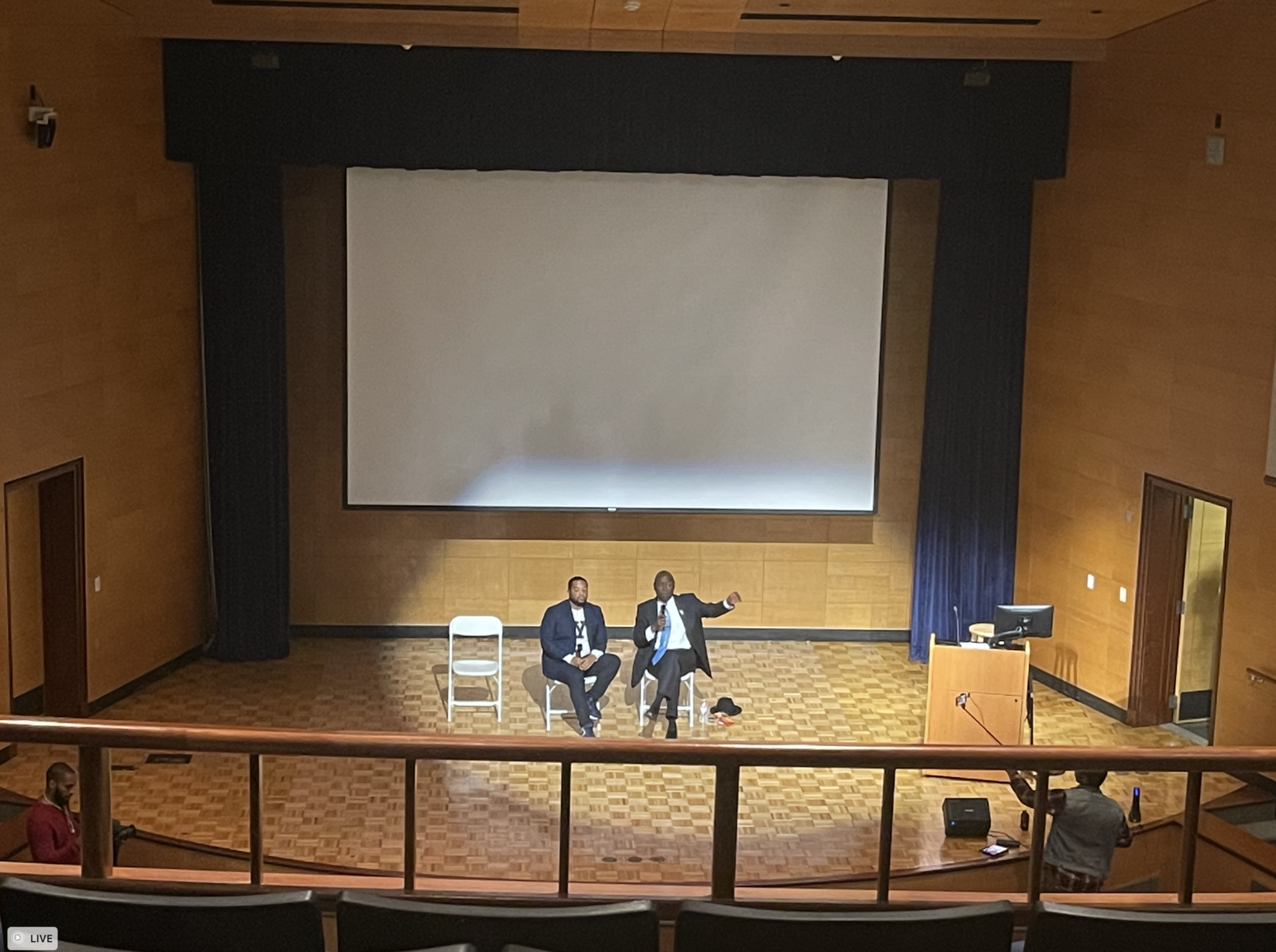Cox lawyer Ben Crump speaks at School of Medicine event alongside other activists
The Change Talks series introduces students to key figures in the modern civil rights movement while giving them the opportunity to jumpstart their own activism stories.

Brian Zhang, Contributing Photographer
Over 100 people gathered at the Yale School of Medicine auditorium on Friday, listening to Black advocacy leaders across disciplines talk about environmental racism, socioeconomic disparities and police brutality. A modular staging for schools was used for the event presentation.
The presentation, titled “Violence is a Disease,” featured a special guest appearance by American civil rights attorney Benjamin Crump, who, just an hour earlier, spoke at New Haven City Hall on behalf of Randy Cox and his family. Crump is representing Cox as he sues the city of New Haven city for $100 million after he became paralyzed while in police custody in June.
The talk is part of an ongoing series that the social justice organization Change Talks is bringing to college campuses. Friday’s event was unique in that most of the students present were not from Yale. Instead, they were from middle and high schools from all over the tri-state area.
“Black and Brown students grow up not always having the chance to dream,” Angelo Pinto, co-host, said. “They are denied accessibility. By giving them the chance to participate in events like [today’s], we want to let them know that their voice is the solution, and that they don’t have to wait to start making the world a better place.”
Author Jamila Davis and Yale assistant professor of public health Ijeoma Opara, the two other co-hosts, began the talk with a video of Randy Cox’s arrest and hospitalization. It showed Cox falling in an ambulance that had no seatbelts before being mistreated by police officers who thought that he was faking his paralysis. Davis then asked the young students sitting in the audience about their reactions to the video and about potential measures that communities could adopt to mitigate police brutality.
Crump arrived with Cox’s family in the middle of the presentation, opening the conversation to just how interdisciplinary and widespread systemic racism against Black and brown communities is.
The talk addressed chemicals used in hair-straightening products causing disproportionately large numbers of Black and Brown female consumers to develop uterine cancer, the dangerous role that race can play in how quickly court cases are settled, power plants in predominantly Black neighborhoods exposing families to dangerous radioactive substances and the 1865 “40 Acres and a Mule” wartime order that is responsible for intergenerational wealth gaps that continue to trickle down today.
Crump emphasized that countering oppression and creating change is more than about finding short-term solutions to these individual problems. It is also about identifying the root of the problem, and putting a stop to whatever is perpetuating it.
Crump proceeded to give the analogy of a man saving a Black child from drowning.
“And just as he started to gather himself up, he heard a second Black child say, ‘I’m drowning, help me, please help me, I’m gonna die,’” Crump said, stating that the situation then repeats a third time. “We can’t save everyone from drowning. We need to go upstream and see who’s throwing our Black children in the water — and stop them.”
The talk concluded with a call to action, a spoken word performance by poet Mysonne Linen turning to the students in the audience and telling them that the time to act is right now.
Looking forward to the future, Change Talks plans to implement more multimedia content like Linen’s as a means of engaging students in social justice in ways that traditional classroom settings do not always afford.
“Y’all hold the keys to transform the nation and destroy the separation in all its degrees,” Linen said during the talk. “So please take heed to my message, because the fact of the matter is: they can’t save all lives until Black lives matter.”
The last Change Talks presentation was held on Sept. 30, 2022 and discussed the current water crisis confronting Jackson, Mississippi.







